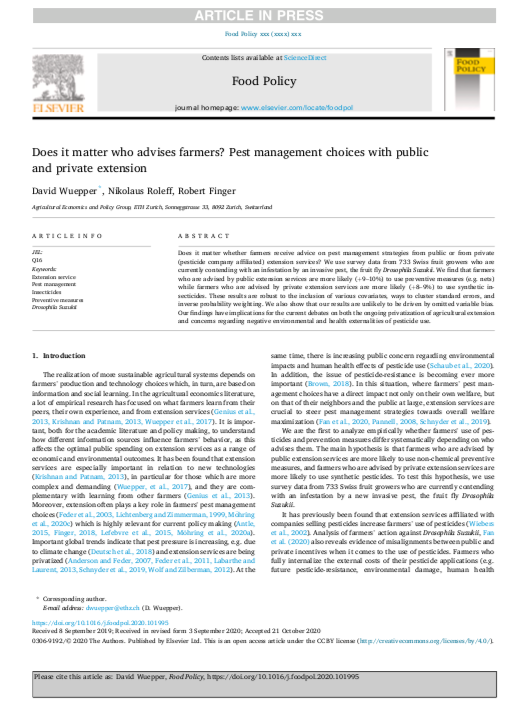Does it matter who advises farmers? Pest management choices with public and private extension

ABSTRACT
Does it matter whether farmers receive advice on pest management strategies from public or from private (pesticide company affiliated) extension services? We use survey data from 733 Swiss fruit growers who are currently contending with an infestation by an invasive pest, the fruit fly Drosophila Suzukii. We find that farmers who are advised by public extension services are more likely (+9–10%) to use preventive measures (e.g. nets) while farmers who are advised by private extension services are more likely (+8–9%) to use synthetic insecticides. These results are robust to the inclusion of various covariates, ways to cluster standard errors, and inverse probability weighting. We also show that our results are unlikely to be driven by omitted variable bias. Our findings have implications for the current debates on both the ongoing privatization of agricultural extension and concerns regarding negative environmental and health externalities of pesticide use.